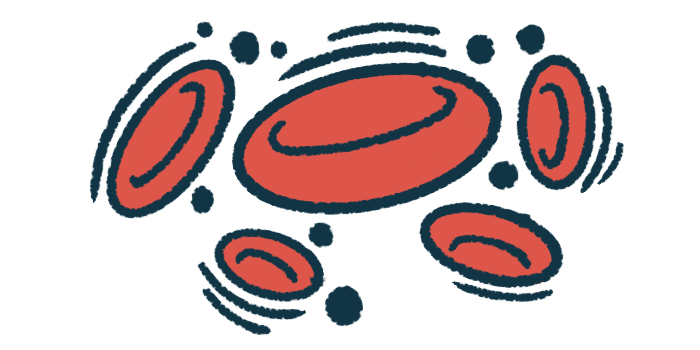Collaboration seeks to expand awareness of sickle cell carrier status
23andMe and Sickle Cell 101 team up to offer DNA testing and research
Written by |

Because many individuals of African ancestry don’t know they have the sickle cell trait or what it means to be a carrier, 23andMe and the nonprofit organization Sickle Cell 101 are collaborating to expand an awareness program.
With the collaboration, up to 1,000 U.S. adults of African descent, or who have ancestry from a region where SCD is common, will receive free DNA testing and access to the human genetics and biopharmaceutical company 23andMe’s Health + Ancestry Service.
Funding for testing, which requires a saliva sample, will come from 23andMe to support Sickle Cell 101 in this effort. The nonprofit works to connect, educate, and empower the sickle cell disease (SCD) community, and advocates for more research funding and improved health equity for patients globally.
The 23andMe service includes a Sickle Cell Anemia Carrier Status report, which looks at the hemoglobin S variant in the HBB gene linked to sickle cell anemia — the most common and severe form of SCD — and apprises participants of their carrier status. While the report includes a lot of information about what it means to have the sickle cell trait, the collaboration goes further by offering those with additional questions opportunities to discuss them with experts at Sickle Cell 101.
“This project builds on what we’re already doing at 23andMe, but also what we’re working on in the future,” Joyce Tung, PhD, vice president of research at 23andMe, said in a press release. “We have both research projects and an ongoing awareness campaign focused on sickle cell. Adding Sickle Cell 101’s resources and expertise will allow us to expand that effort to more people. Beyond that,” Tung added, “23andMe is about empowering people through access to their genetic data so they can make more informed decisions about their health. This is exactly what this program and collaboration offers.”
About one in 13 African Americans — and 300 million individuals globally — have the sickle cell trait, which results from a genetic mutation that is passed down from a parent. Those who have the trait inherit one normal gene and one sickle cell gene. By comparison, those with SCD inherit two faulty gene copies.
Those with the trait do not get sickle cell. However, in rare cases, a mutation in a single gene copy can cause some milder SCD symptoms, which also are more apt to occur when trait carriers are in a low-oxygen environment at high altitudes or experience severe dehydration.
Many lack access to genetic testing
Historically, those with African lineage or who are from an area where sickle cell is common have generally lacked access to affordable and reliable genetic testing, leaving many individuals unaware of their carrier status and how that can affect family-planning decisions or, in certain cases, their health.
“At Sickle Cell 101, our holistic approach to advocacy includes prioritizing both sickle cell disease and sickle cell trait awareness,” said Stephen Boateng, vice president of partnerships and scientific collaborations at Sickle Cell 101. “While our primary focus is deservingly on educating and advocating for improved funding, care, and treatment options for sickle cell disease, this collaboration with 23andMe reinforces our commitment to also addressing a historical healthcare disparity that has deprioritized access to testing and reliable information to the community most impacted by sickle cell.”
The awareness project builds upon 23andMe’s ongoing awareness efforts with the Morehouse School of Medicine and the Sickle Cell Foundation of Georgia. As part of those efforts, the foundation created a dedicated webpage for participants through which those involved with 23andMe’s African American Genetics Project can connect with the foundation’s genetic counselors.
Collaboration expands online resources
Through the project, collaborators learned that participants wished to ask questions about their carrier status. Thus, the collaboration expands online resources to those who may be trait carriers or have SCD.
In addition to working to raise awareness, 23andMe seeks to learn more about sickle cell through research. The biopharmaceutical company recently collaborated with researchers from various institutions on a genetic study that’s touted as being the largest, and most diverse, about the sickle cell trait.



